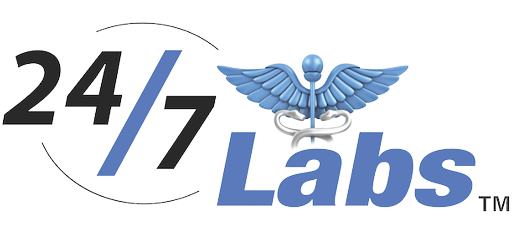Male Cancer and Tumor Marker Panel
$219.00
Description
(CBC) Complete Blood Count:
This is a routine screening test that measures the concentration of white blood cells (leukocytes), red blood cells (erythrocytes), and platelets (thrombocytes). This test is used to evaluate a patient’s overall health and is also useful in diagnosing many disorders, such as anemia, infections, leukemia and bleeding problems.
(CMP) 14 test Chemistry Panel:
This is a routine screening panel composed of 14 tests that measure the levels of electrolytes such as sodium and potassium as well as glucose and protein levels in the blood. This panel also measures the function of the liver and kidneys.
Alpha-Feto Protein
In men, nonpregnant women, and children, AFP in the blood can mean that certain types of cancer-especially cancer of the testicles, ovaries, stomach, pancreas, or liver-are present. High levels of AFP may also be found in Hodgkin’s disease, lymphoma, brain tumors, and renal cell cancer.
CEA
The carcinoembryonic antigen (CEA) test measures the amount of this protein that may appear in the blood of some people who have certain kinds of cancers, especially cancer of the large intestine (colon and rectal cancer). It may also be present in people with cancer of the pancreas, breast, ovary, or lung.
Neuron-Specific Enolase
Neuron-specific enolase from human brain has been used in a study to assess human amniotic mesenchymal stem cells in the treatment of focal cerebral ischemia. It has also been used in a study to investigate sinonasal teratocarcinosarcoma with rhabdoid features.
PSA
PSA is a protein produced by the prostate gland. This test measures levels of PSA in the blood and can be used to detect prostate cancer or other prostate abnormalities.
Amylase
An amylase test measures the amount of this enzyme in a sample of blood taken from a vein or in a sample of urine.
Normally, only low levels of amylase are found in the blood or urine. But if the pancreas or salivary glands become damaged or blocked, more amylase is usually released into the blood and urine. In the blood, amylase levels rise for only a short time. In the urine, amylase may remain high for several days.
Beta 2- Microglobulin
This helps your doctor know how much B2-M, a protein made by cancer cells, is in your blood. Higher levels can be a sign of a more advanced stage of myeloma.






